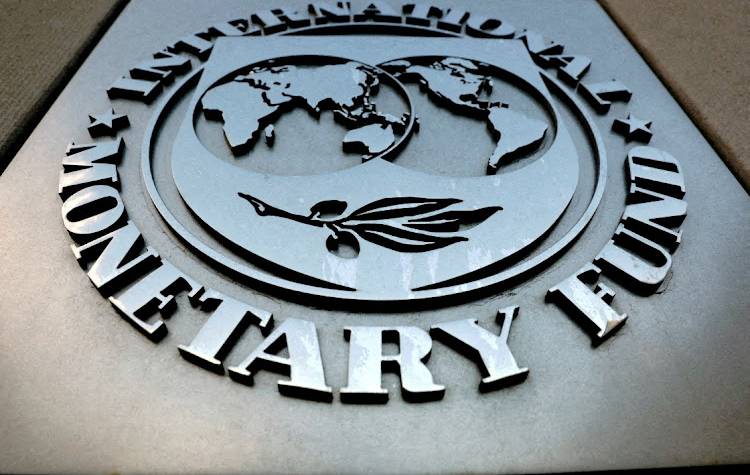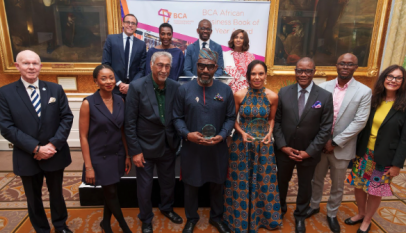OP-ED | IMF Surcharge Reforms a Welcome First Step for Indebted African Nations, By Karabo Mokgonyana
Karabo Mokgonyana says for African countries burdened by heavy debt to capitalise on International Monetary Fund’s (IMF) reforms they must introduce targeted financial instruments for renewable energy as well as strengthen regulatory frameworks to attract long-term green investment.

The IMF’s decision to reduce borrowing costs by about 36%, or $1.2bn annually, will provide African nations with a significant financial break.
This reduction was one of the most notable outcomes of the IMF’s recent review of its charges and surcharge policy. The review introduced many reforms designed to reduce the financial pressure on heavily indebted countries, most of them in Africa.
The changes are set to take effect in November in a move analysts say will significantly alleviate borrowing costs. Coming when many countries are battling rising debt and complex development challenges, the reforms are timely. African countries will benefit from much-needed fiscal relief.
For decades surcharges have been criticised for worsening the debt burden of economies already grappling with structural inequalities, inflation, post-pandemic economic recovery and, now, the raging climate crisis. The reform package is most significant for Africa, where economic recovery is crucial. The continent is under intense and growing pressure to accelerate its transition to renewable energy.
However, questions linger regarding how this policy change will affect long-term investments in critical sectors, such as renewable energy, that are essential for Africa’s sustainable future.
What the Reforms Will Do
One of the most significant outcomes of this reform is the immediate reduction in borrowing costs for countries across Africa. By lowering surcharges and raising the thresholds for when they apply, the IMF has acknowledged the debt distress many African nations face.
This provides a fiscal cushion that is especially valuable for countries such as Zambia, Ghana and Kenya, where debt servicing has strained public resources. The reforms will reduce the number of African nations subject to surcharges, thus allowing them to prioritise recovery and development investments.
The reduction in surcharges also creates an opportunity for African governments to redirect some of their resources towards crucial development projects. Renewable energy projects, often costly and long term, could now be more feasible as African countries are able to access financing without incurring excessive costs.
As climate change escalates, affecting populations across the continent, the reforms could also allow governments to allocate more funds to climate adaptation and mitigation initiatives. This is a breath of life to many front-line communities.
The increase in thresholds for commitment fees adds an extra layer of flexibility for African nations. Many countries on the continent are engaged in large-scale infrastructure projects. Renewable energy is a critical component of this agenda. Raising the limit on commitment fees will make it possible for countries to borrow more while avoiding immediate penalties. This will provide room for African nations to pursue green energy projects with greater financial ease.
Downside of the Reforms
While these reforms represent many positive steps, they also pose challenges for Africa’s renewable energy future. There are deep technical concerns that the structural barriers many African countries face will affect their ability to fully leverage the benefits of the reforms. This will, in turn, affect their ability to pursue a full-scale renewable energy transition.
While the reforms reduce borrowing costs, the time-based surcharges, though lowered from 100 basis points to 75 basis points, remain a challenge for countries that need prolonged financial support. Renewable energy projects such as large-scale solar and wind farms require sustained financing over several years.
Despite the reduction, the costs associated with long-term borrowing may still act as a deterrent for many African nations looking to invest in capital-intensive renewable energy solutions. This limits their ability to shift away from traditional fossil fuels at the pace necessary to meet climate targets.
Furthermore, the IMF continues to rely on quota-based borrowing systems. Under the system a country’s borrowing capacity is tied to its quota. The main limitation of the quota system is that it neither recognises nor accurately reflects a country’s development needs.
By failing to address this structural inequality the reforms fall short. This could hinder Africa’s green transition, particularly in countries that need substantial investment in renewables infrastructure. This remains a major constraint for smaller African economies such as Eswatini, Lesotho and Malawi, with their limited quotas. These nations will continue to face difficulties in their attempts to access sufficient funds for large-scale renewable energy projects.
Timelines Extended
While the increase in thresholds for commitment fees is a welcome change, these fees, charged on undisbursed portions of loans, could still discourage African nations from pursuing large, long-term renewable energy projects.
Such projects tend to take many years to complete and operationalise. The prospect of accumulating commitment fees over extended periods may deter governments from securing the financing needed for green energy transitions. Such scenarios could emerge in African nations in which project timelines are often extended due to logistical, regulatory or governance challenges.
While the reforms are welcome, we cannot overlook the issue of debt-driven austerity measures imposed by the IMF that many African countries still face. These fiscal constraints can stifle public investment in renewable energy and other critical sectors.
To meet the IMF’s conditions governments of developing nations are often forced to prioritise short-term economic recovery measures. This approach can result in reduced budget allocations for long-term development projects, including those on renewable energy. Some African countries are in an economic dilemma: whether to offset debt or pursue their sustainable development goals.
Beyond the direct impact of the IMF’s surcharge reforms, several broader challenges could inhibit Africa’s ability to leverage the reforms for renewable energy development.
In addition to the huge financial outlay required for such projects, many African countries face institutional and regulatory challenges that impede their ability to implement renewable energy projects. For instance, weak governance structures, inconsistent regulations and corruption can hinder the progress of green energy initiatives.
Without the necessary reforms to strengthen regulatory frameworks and improve transparency, even the financial relief provided by the IMF’s reforms may not be enough to unlock large-scale investment in renewable energy.
In addition, renewable energy projects in Africa are often subject to political and market risks. Political instability, changing government priorities and the absence of robust legal protection for investors contribute to project uncertainty. These factors can deter domestic and foreign investors.
The volatility of global energy markets may further complicate Africa’s efforts to transition to renewable energy as governments grapple with fluctuating commodity prices and shifting international demand for goods.
The IMF’s reforms are a step in the right direction for African countries burdened by heavy debt. For the continent to capitalise on the changes the IMF and African nations themselves must introduce additional measures such as targeted financial instruments for renewable energy and strengthened regulatory frameworks to attract long-term green investment.
Karabo Mokgonyana is a renewable energy campaigner at Power Shift Africa. This opinion article was originally published by Business Day South Africa. You can view the original article here. The views expressed in the article are those of the author and do not necessarily reflect African Newspage’s editorial policy.

















